Simon Townshend - Interview
by Lisa Torem
published: 15 / 5 / 2016
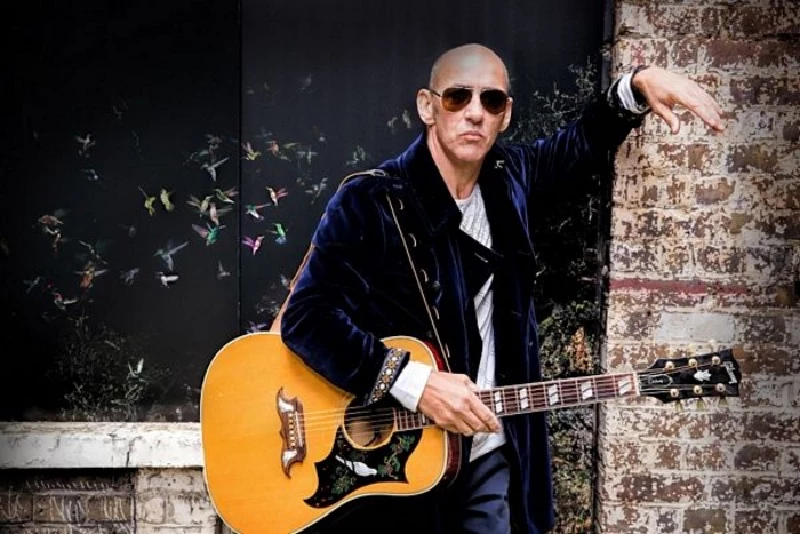
intro
British singer-songwriter Simon Townshend speaks to Lisa Torem about his solo career, studio work and touring on 'The Who Hits 50' tour
In ‘Tintern Abbey’, William Wordsworth wrote about “The still, sad music of humanity.” That curious phrase brought to mind British singer/songwriter Simon Townshend’s compelling lyrics and lilting melodies as his songs unquestionably encapsulate the stillness and sadness of humanity as well as the ironies and joys. I saw him twice in a week, once playing a solo date, and once with the Who, before we spoke in what was our third interview with him. He speaks frankly about family challenges, creating narratives, working in the studio and more. If you haven’t yet heard Simon, who is the brother of Pete Townshend, perform live, you will want to, after he walks Pennyblackmusic readers through the making of solid and powerful arrangements. As Simon, promotes his new EP, tours as second guitarist on ‘The Who Hits 50’ Tour, and performs solo, he advances our humanity one phrase at a time. PB: I had such fun seeing you the night before at the Who's concert in Chicago. ST: It was a good night, a great crowd. PB: What’s the back-story of your song ‘Girl in New York’? ST: I’d come over to New York to work and to give my wife some space - we were having problems at the time. I was there for about three months, living in different places. A friend of mine, Jeff Slate, put me up in his flat on Avenue A in the East Village and there. I wrote ‘Girl in New York’, ‘The Way It Is’ and ‘Time the Healer’. ‘Girl in New York’ was an idea I came up with about falling in love with someone when you’re in a different country. My wife was back home in England and I was in New York and the time apart was what brought us back together. PB: ‘Mother’ was followed by ‘Still Love’. Do you typically play them together? ST: No, ‘Mother’ is the first track on ‘Denial’ (Stir Music, 2014) It’s a production. It goes through this nylon acoustic part in the beginning and then thrashes in with the full band and doesn’t really work played on a nylon string acoustic. I was trying to step it up, so I just played a little section to let people hear the idea. ‘Still Love’ is another idea entirely. That was on ‘Looking Out, Looking In’ (Stir Music, 2012). It’s a reverse picking. For a long time, I was unable to perform it live, to the point where I thought I was doing it justice. It was a very difficult song for me to record because when I wrote it I was struggling. It’s one of those things when you have to turn your fingering around. Finally I’ve got it now that I can play, so I brought it into my set about six months ago. It goes down really well, doesn’t it? PB: It’s very touching. ST: Again I wrote it, creating a scenario. I was thinking, how I would feel if I were on my own, if my wife died and I thought of the idea, still love, as in still life. So I’m singing to a dead person, basically. A lot of people think it’s tragic, but it’s a reality, isn’t it? It could happen to me. It could happen to her. It’s just one of those things. You could ignore it, but it’s going to come to everyone and I just thought it was a very cool idea to sing about someone as though they were dead. PB: That vulnerability really comes across. It really can bring tears to one’s eyes. ST: Yeah, it’s a beautiful track. I’m pushing to try and get that one into a film. I think it would really work well in a movie in a soundtrack, somewhere. PB: Who gets to hear a new song first? Do you play it for your wife or a musical colleague or do you sit with it for a while? ST: You always want to play new songs for other people. I suppose my wife because she’s always with me is always the first person to hear them, but I like to play them to an audience to gauge how they’ll go down, how they’ll be received. When I wrote, ‘Denial’, I was dying to get onstage to play it. It just felt it was one of those songs — I just absolutely knew, but I had played it to my wife. She said it was a really special song. She understood it immediately. I suppose I do take a lot from my partner in that respect and then you get the confidence to play it to the audiences. PB: Was that a difficult subject to write about? ST: No, because it was real. It was actually happening. It’s easy to write about real things, the things that you know. It’s harder to create stories out of thin air, so this was all stuff that was happening around us. My family had always struggled with addiction. It was clearly something that we had going for us. My mother was pretty bad for a while. She did get clean and spent much of her life clean. Of course, my brother, Pete, and my brother, Paul, as well, are clean and have been for twenty years. So this is a genetic problem that you can’t get away from. I even had a call from one of my sons not too long ago, saying that he’s going to give up drinking, as it was becoming a problem, but I’m not surprised because as you get older you fall into patterns, a routine. You have a day job, you work, you go home, you have a glass of wine and you might have another one and by the time you go to bed, you’re not clear headed anymore. I always think of it as a shiny coin that lost its shine. It becomes sort of tarnished. It’s under there, it’s clean and it’s bright and it’s shiny under there. You just need to give it time to come back and show itself. PB: "I’d like to read the poetry that once a certain lady put down”. For whom did you write this intriguing lyric from ‘Denial’? ST: I wrote that about my daughter. I’m talking very personally. I’d better be careful. I’m talking about other people. It’s all around me and it always has been. We’re all very aware of it and we do our best to keep it under control. That’s the way it is when you’re an addict. I’m clean and very lucky. I haven’t done the Twelve Steps, actually. It’s something I may do one day, because what happens with addiction is it runs from one thing to another. I find myself in shops all the time, wanting to spend money. You kind of just get addicted about everything, about anything in life. So you just have to somehow learn to have nothing and just be yourself and that’s the craft there. And that verse was probably aimed at my daughter, more than anything. She’s been clean now for just over three years, so she’s done incredibly well. I think the other thing is that being exposed to the sort of life that we had, having such an immense amount of attention drawn to our family all the time, not hiding from the fact that my brother does draw this attention to us, you don’t get a choice. We have had to live with this ever since I was a little toddler. Having a famous brother, we’ve had things happen at our house. We’ve had Tommy arrive at the door. “I’m Tommy”. This guy left home in Liverpool and found his way to London to ring our doorbell and announce that he is Tommy. These things have happened right through our lives. This is what came with Pete’s success; spin offs into our family life. We have to deal with that and I think when you’re sixteen or seventeen you get a bit crazy, so I think my daughter has done incredibly well. She’s very well now. PB: You use about four different instruments during a solo gig, including the Techamine nylon classical you mentioned. Do you generally ascribe an instrument to a particular song? ‘Bed of Roses’ on mandolin? Is that written in stone? ST: I don’t think I would play it on any other instrument. I could play it on guitar, but it sort of suits the mandolin. It’s an hour-and-a-half show, and from my own experience if you go to see a solo acoustic gig you get a little bit samey because there’s no variation in the instrumentation if it’s all six-string acoustic. It’s difficult because I do this “one man and his guitar” thing, but at the same time I don’t want people to get bored. ‘I am the Answer’ and ‘Forever and a Day’ were actually written on twelve-string, so I feel I owe the songs the right to be played on twelve-string, live. That’s another instrument you have to carry with you; a lot of strings and a lot of tuning. PB: The new EP on your Stir label has four songs including ‘Time Bomb’. That arrangement features a compelling, throbbing bass line, followed by a series of what I call Chuck Berry chords and then it transitions into an even more explosive section. ST: That was what made the song, wasn’t it? That was the magic moment that made it worth pursuing, little things like that. It drops a key down to a riff, a sort of Chuck Berry riff, I guess. Again, it’s subject matter. My friend had had a heart attack. He’s forty years old and it was a complete shock to everyone. We were all absolutely gobsmacked and when something like that happens, it makes you think, crikey, I’m fifty-five. I was fifty-three at the time, but it still completely shocked me, so that song just again wrote itself basically. What does the song say about how everything from the earth comes back and how we’re all going to end up there? Life’s a time bomb. PB: It’s actually quite an optimistic song. ST: It’s all about just going out and living your life, but not being too crazy. Just have a great time and enjoy it. PB: Can you describe the process of remastering your last two albums? ST: I just had remastered ‘Looking Out, Looking In’ at Abbey Road by Geoff Pesche, (Richard Hawley, Blur, Rizzle Kicks) who is just superb. I had set up my studio in London and I hadn’t really tested it. I think the studio was bass heavy at the time, so that the mastering that we did on it didn’t quite fill the spectrum. It sounds fatter. It’s much, much better. So for those who do like the album, I think it’s a big improvement. But it’s not remixed as such. All the vocal levels, the guitar levels and the instrumentation are the same. On ‘Denial’, we’ve actually remixed the whole album by a guy who runs a little studio in central London and does a lot of TV work. He’s one of the best sound engineers and I just thought, "Why not just give the whole thing to somebody and let it go out of my hands?’ When I’ve got new products, I get very attached and I don’t want to let anyone else take it and run with it. It happens to a lot of artists. It’s an easy trap to fall into. But the greatest thing is to give it to someone and say, "You finish it off. You make it sound the way you think it should sound." Mark Campbell remixed it all. It’s very different, almost like more mono. There’s less air between each instrument. It’s much more homogenised. I would have thought that if you had the EP, you would have heard the difference on ‘Time Bomb’. It’s very apparent and I really think it’s a marked improvement. We had it remastered at Abbey Road. PB: How about translating performance energy to the studio? ST: I’ve been doing everything myself. I don’t like using click tracks. I like to have things speed up and slow down a bit. Not all the time - I have been known to use click tracks. It makes life easier if you do that, but what I’ve tended to do on the last two albums, is record the basic song and then put down a manual click track to that. I put down the energy of the song in an acoustic performance and that is always good enough. If you’ve got a real excitement going in the very first recording of the basic guide track, it will show through the recording, whereas if you put down the click track it’s restricting any movement or any energy having any effect on the track because it can’t move anywhere. That’s something that I’ve found to be very beneficial if you’re recording on your own at home. Because with ‘Denial’, I had a lot of live drums and live bass and actually on ‘Looking Out, Looking In’, that was all cut live as well with the bass player and drummer live in the studio—that was my son Ben with Tony Lowe. We would have my guide tracks playing and they would play along to them and most of the time I know what works. I suppose it’s experience. You learn that. We used to take a whole band in the studio in the ‘70s and record all at the same time and you get a kind of fantastic energy doing that. It’s just how you want to work and take things forward. PB: At ‘The Who Hits 50’, time was allocated for select tracks from ‘Quadrophenia’. Can you enlighten us about learning and performing that complex material? Secondly, Pete perhaps wanted it done a certain way. Was there pressure on you to learn and perform the material? ST: I can take a bit of pressure. I quite like it, actually. Pete and I playing together — duelling guitars I call it. People love it, don’t they? They love the chemistry of brothers onstage. It’s funny. I watched 'The Jimmy Fallon Show', and it’s the first time I had ever seen what people see, and I realised that the brother chemistry thing is very powerful. I think I didn’t know that before. It comes across, doesn’t it? But coming back to ‘Quadrophenia’, it’s an incredibly intense piece, and it relies on a lot of technical guitar playing and lots of fiddly bits and pieces. I think people that hear the finished album hear the theme of it and they don’t realize what’s going on musically. It’s a tough call at times, but one that I really enjoy. I do enjoy a challenge and I’ve improved so much over the years playing these parts. I remember the pressure on me back in ’97 when we did a ‘Quadrophenia’ tour for the first time. I was backstage learning parts before we went onstage, and that was very different for me back then. It was much, much more pressure. I hadn’t had time to rehearse because no one had told me what we’d be doing until the day before the show and Pete had decided he didn’t want to play any electric guitar at all, which at that time made me feel uncomfortable because I felt the audience wanted to see Pete play electric guitar. That’s what you want when you go see the Who. PB: The legendary windmill arm and all the rest. ST: That was a difficult time when it started out. Pete hadn’t performed out with the Who for a long time; maybe since 1989 until ’96 when we did Hyde Park. On that show we had lead guitarist, Geoff Whitehorn, playing all the guitar. Pete was in a plastic cage, because his hearing was so bad at the time, playing acoustic. So things develop. I actually believe that it was Zak Starkey (on drums) and I — Zak came along at the same time. We joined Roger on a tour in ’94 and did a twenty-minute ‘Quadrophenia’ segment. It just sort of grew from there. I think Pete had gotten wind of the fact that Zak and I had been touring with Roger, that it was being received very well and that Roger had been desperately trying to get Pete back on the stage to do some touring. The transition of Pete playing acoustic to electric came when I was playing all the electric parts and then, towards the end of the show, Pete would pick up an electric and play ‘Love Reign O’er Me’ on the electric, just that song, and the next night he might say before we went on, "I’ll tell you what, I’ll play the solo in ‘5.15’." I’d say, "Okay, cool. I’ll play acoustic." And the next night he’d say, "I’m going to play the electric on ‘Is It Me?’ tonight." By the end of it, I’m on acoustic and he’s on electric. But it took a year or two for that transition to happen and for everyone to get comfortable with performing live again because he had been out for quite some time. It’s a growing process. I feel in some ways Zak and I were responsible for the reunification of the Who - without trying to take credit, because obviously they’d been around for years and it was fantastic, just getting them back on the road and comfortable — and I think that’s why I’ve held down being in the band because of that chemistry. Having some young blood coming into the fold really helped as well. PB: Simon Townshend, you’re very adaptable. ST: I try to be, yeah. PB: At your solo show, you had little time to decompress. Boston flight landed. You raced to Lincoln Hall in Chicago with little time to spare. ST: I enjoy that. You’re always better off having something to do in life. PB: Rumour has it that this is the final Who Tour. ST: I don’t know. They’ve said that before and it could be. But Pete and Roger have great energy. Roger’s voice is sounding excellent as well at the moment. It’s better than ever. I don’t know if it will be the end, the last tour. I saw a line in a film last night — “they say musicians never retire because musicians want to go on making music”, and it’s true, isn’t it? You see them say, “We’re not going to do any more gigs” but there’s a great demand. People want to see it. People want to buy the tickets so you get promoters saying, "I’ll give you X amount if you come and do this show," and it makes it very hard to say no because, one, you’re going to get paid, so you’re doing some work and we all want to work and you’re playing your music in front of appreciative people. It’s very hard to say, "We’re not going to do it anymore." Look at the Stones. They’re looking at four years' worth of shows and they’re older than the Who. I can’t be sure. I can’t answer. If Pete says, "This is the end," he normally means it. He’s pretty sure about his plans in life, but you get older you get nearer the finish line and you want to do as much as you can. You want to get your music to as many people as you can, as well, and that’s something we are doing. We’re getting the music heard by millions and millions of people in the last ten, fifteen years, so it’s a great thing and I think it might be hard for them. There was a wake-up call last year when Roger got ill with Meningitis. That’s how I see things coming to an end, more that somebody will be unfit to go the next mile. Right now Roger is back to what looks like full health. He’s singing incredibly well. It’s not like he’s lost any range. He’s singing all the high notes and in all the original keys. He hasn’t dropped any keys. Roger won’t let you do that. It’s there and we have this response at every show in all the reviews. It’s sort of five-star. Until such a time as that changes, I can see it carrying on, personally. It might be the very last tour. PB: You have stated: “I seem to document my life through my music”. ST: I think that’s related to the songs that I write. I tend to write about the real things that I know and I experience. I guess I’m just living the dream at the moment. It’s all going to end one day. I’ll be back in my front room twiddling my thumbs, wondering how can I go through it all again? PB: Imagine that Harry Chapin, Woody Guthrie, John Lennon and Robert Johnson invite you to a songwriting circle. Would you invite anyone else? Which song would you choose? ST: Willie Nelson or Woody Guthrie? PB: Woody Guthrie, but we can certainly include Willie Nelson. ST: Willie Nelson is cool. I’d love to sing ‘Still Love’ to Willie Nelson. I think that would be a great song for him to sing. My next project is going to be an acoustic album, which I’ve been promising myself to do for quite a while, probably three years, and for various reasons I haven’t got to — it’s a sound thing. I will get it happening hopefully this year. I’ve just organized picking up a piece of equipment that might help me, but I have recorded a couple of songs. Eddie Vedder has sung a couple of songs for me already. I want to get Roger on a track because he’s always talked about singing ‘The Way It Is’ and ‘Time Bomb’ he likes and I’m trying to get some guests and friends to perform. Willie Nelson was one person, I just thought, "My God, I’d love to get him on there and what a great song for him." PB: Thank you, Simon. Photographs: First three photographs © C4 Miles Photography Fourth photograph © Kathy Van Tassell Fifth photograph © Philamonjaro www.philamonjaro.com
Band Links:-
http://www.simontownshend.com/https://www.facebook.com/SimonTownshendOfficial
https://twitter.com/simont40000
Picture Gallery:-
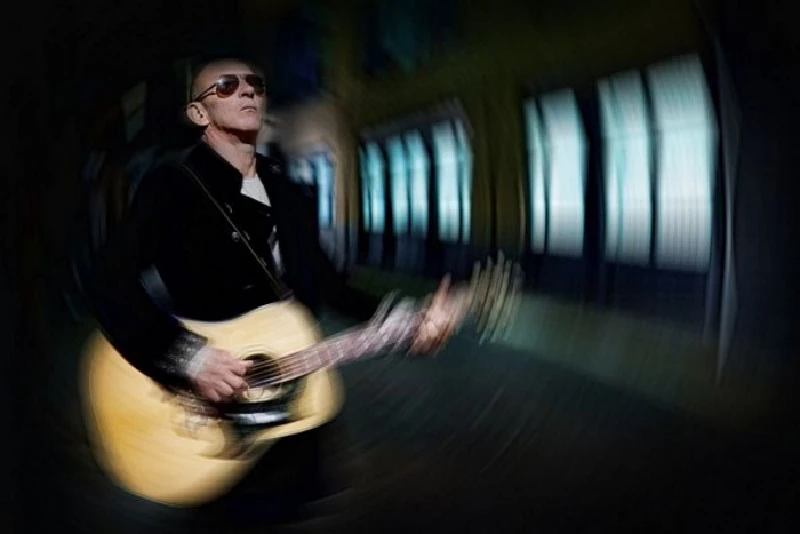
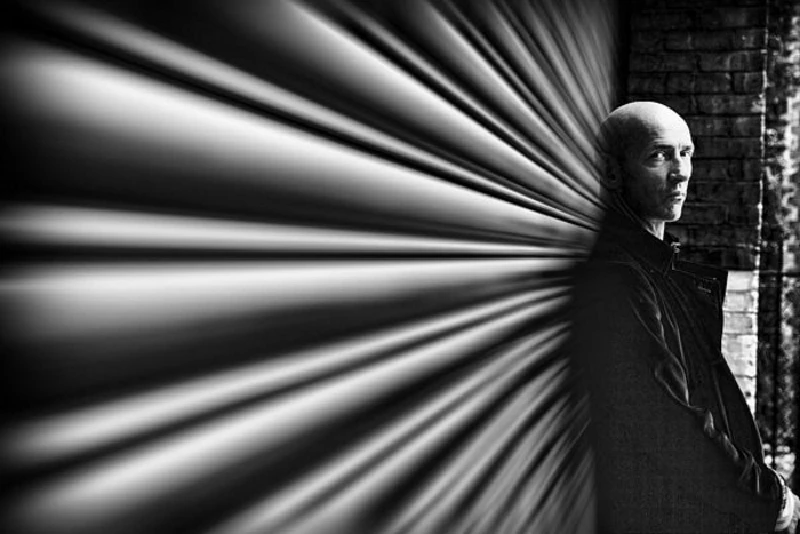
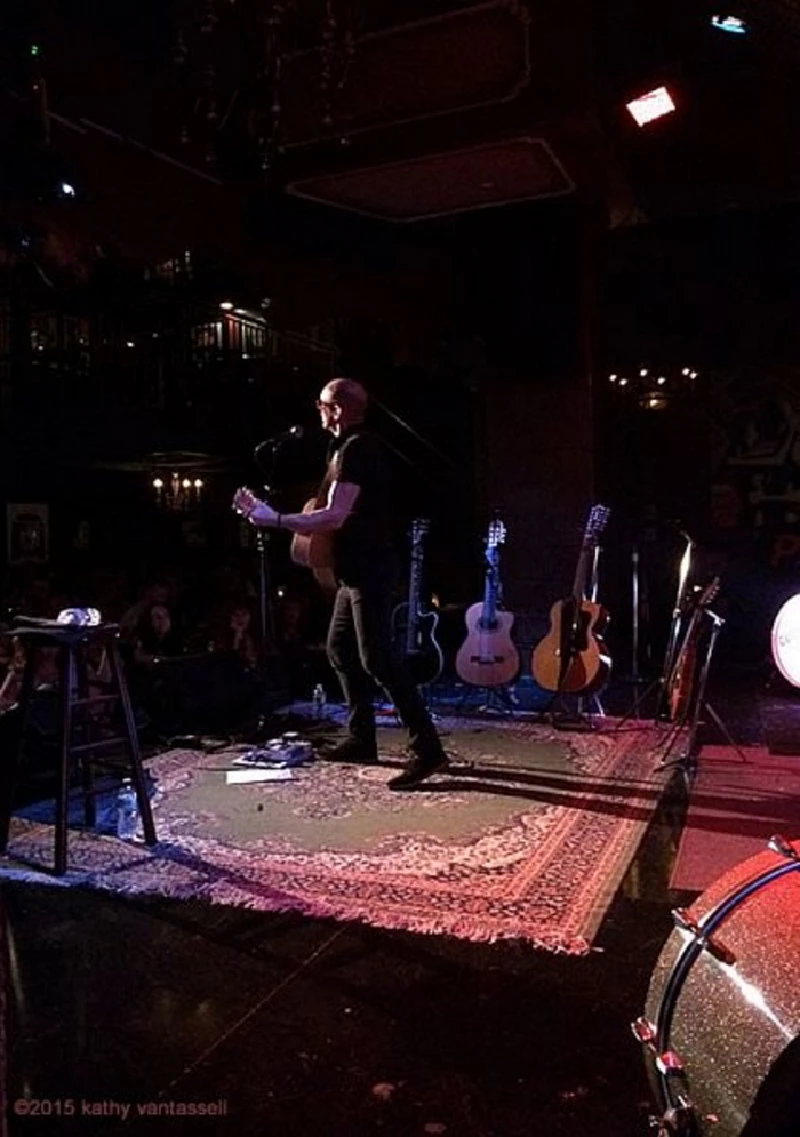
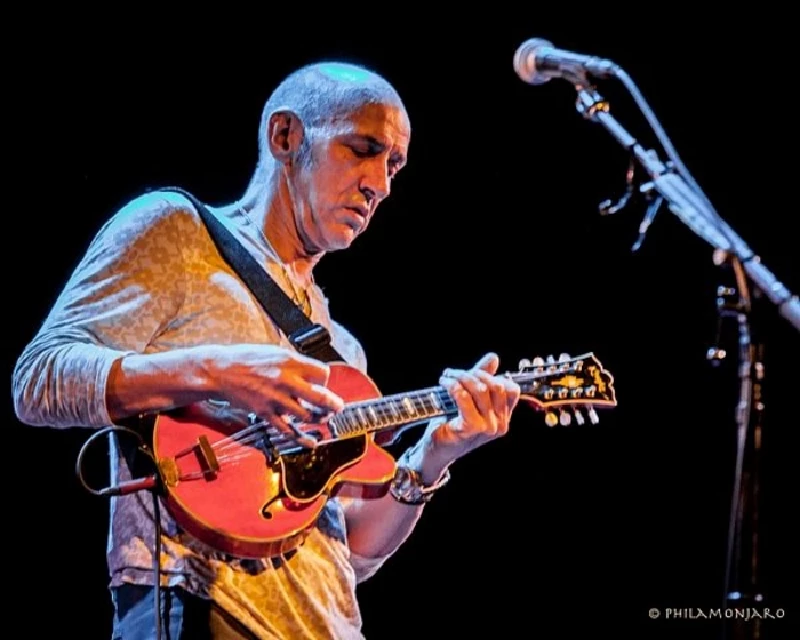
interviews |
|
Interview (2015) |
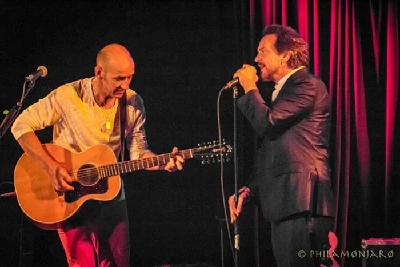
|
| Singer-songwriter Simon Townshend is touring with The Who, performing his solo act across the UK and North America and spreading the news about his current CD, ‘Denial’. He returns for his second riveting interview with Lisa Torem |
| Interview (2012) |
profiles |
|
Profile (2016) |

|
| Lisa Torem examines British singer-songwriter Simon Townshend's albums, 2012's ‘Looking Out Looking in’ and 2014's ‘She Asked Me’, both of which he has re-released in remastered and expanded editions on his own Stir label |
live reviews |
|
Martyrs, Chicago, 12/5/2015 |

|
| Super talent Simon Townshend played a generous set of his classics as well as tracks from new album, ‘Denial’ at Chicago’s Martyrs |
| Martyrs, Chicago, 28/11/2012 |
reviews |
|
Looking Out, Looking In (2013) |
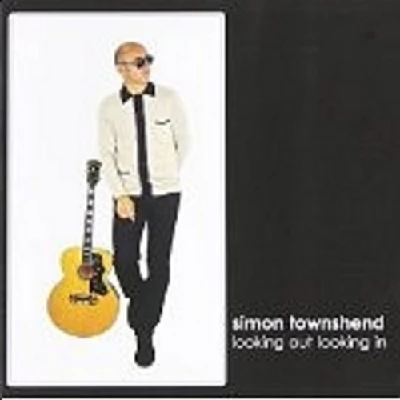
|
| Emotive and versatile seventh album from British singer-songwriter, Simon Townshend |
most viewed articles
current edition
Carl Ewens - David Bowie 1964 to 1982 On Track: Every Album, Every SongArmory Show - Interview with Richard Jobson
Colin Blunstone - Thalia Hall, Chicago, 16/7/2025
John McKay - Interview
Visor Fest - Valencia, Spain, 26/9/2025...27/9/2025
Bathers - Photoscapes 1
Billie Eilish - O2 Arena, London, 10/7/2025
Loft - Interview
Robert Forster - Interview
Sir Tim Rice - Interview
previous editions
Heavenly - P.U.N.K. Girl EPManic Street Preachers - (Gig of a Lifetime) Millennium Stadium, Cardiff, December 1999
Beautiful South - Ten Songs That Made Me Love...
Oasis - Oasis, Earl's Court, London, 1995
Prolapse - Interview
Peter Perrett - In Dreams Begin Responsibilities Interview Part One
Coldplay - Wembley Arena. London, 16/8/2022
Boomtown Rats - Ten Songs That Made Me Love....
Trudie Myerscough-Harris - Interview
Pixies - Ten Songs That Made Me Love...
most viewed reviews
current edition
Sick Man of Europe - The Sick Man of EuropeDavey Woodward - Mumbo in the Jumbo
Amy Macdonald - Is This What You've Been Waiting For?
Lucy Spraggan - Other Sides of the Moon
Phew, Erika Kobayashi,, Dieter Moebius - Radium Girls
Suzanne Vega - Flying With Angels
Bush - I Beat Loneliness
Blueboy - 2
Alice Cooper - The Revenge of Alice Cooper
Cynthia Erivo - I Forgive You
Pennyblackmusic Regular Contributors
Adrian Janes
Amanda J. Window
Andrew Twambley
Anthony Dhanendran
Benjamin Howarth
Cila Warncke
Daniel Cressey
Darren Aston
Dastardly
Dave Goodwin
Denzil Watson
Dominic B. Simpson
Eoghan Lyng
Fiona Hutchings
Harry Sherriff
Helen Tipping
Jamie Rowland
John Clarkson
Julie Cruickshank
Kimberly Bright
Lisa Torem
Maarten Schiethart